Text

STORIES OF HINDU GODS (India: 1720)
Includes 9 full-pages of painted miniatures, showing Persian influence although the manuscript is probably of Indian origin.
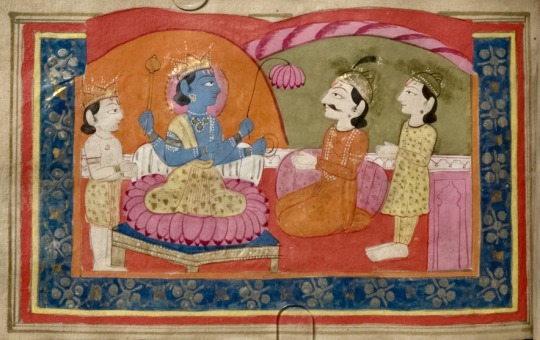
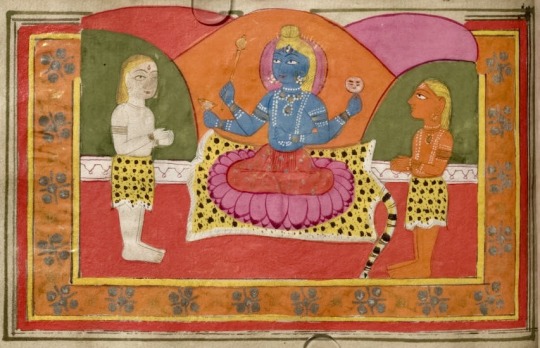

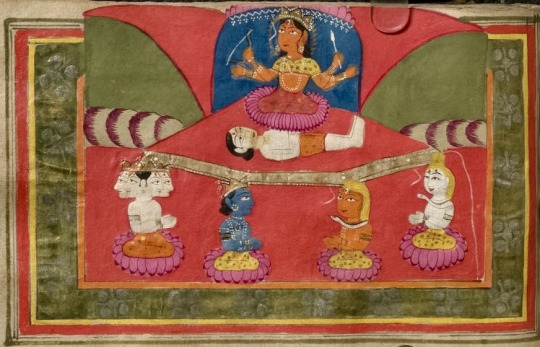


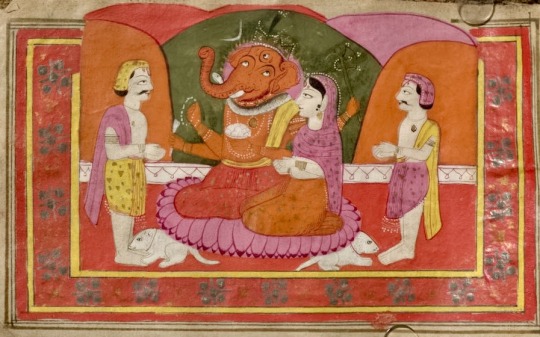
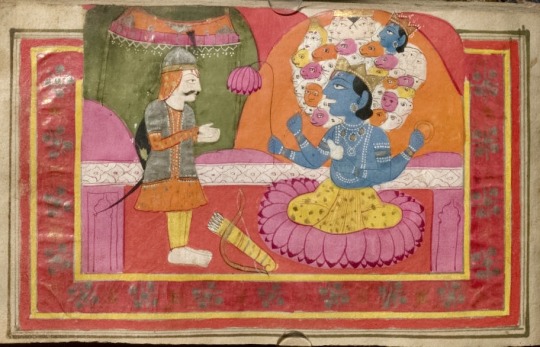

source
33 notes
·
View notes
Text
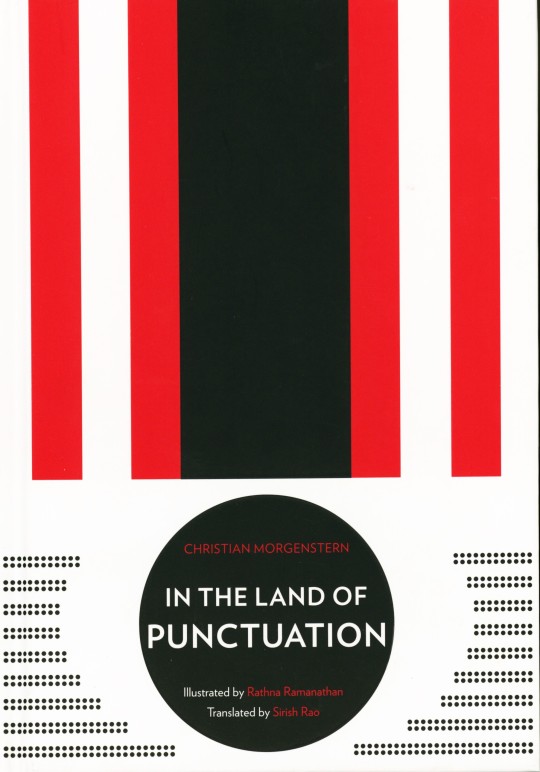
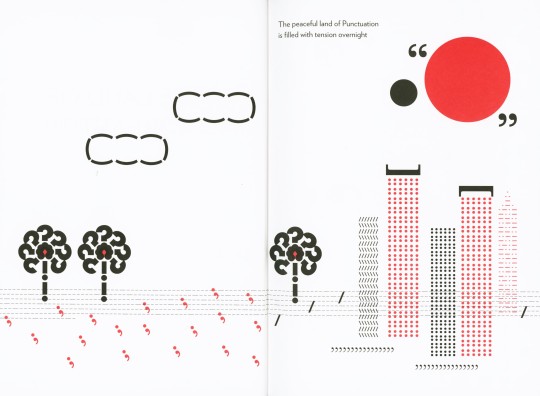

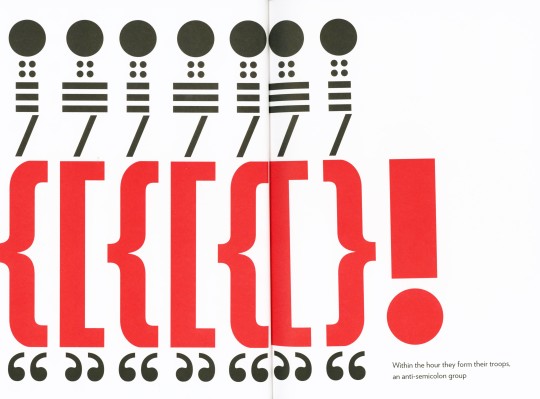
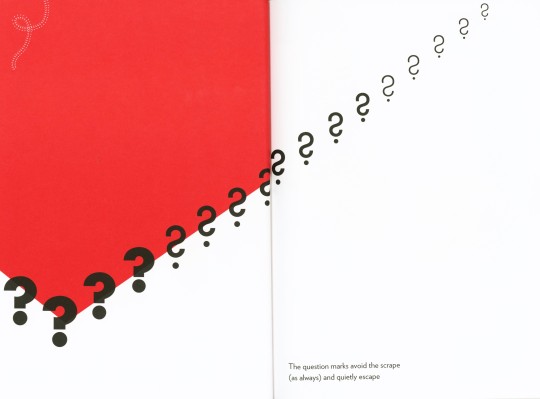
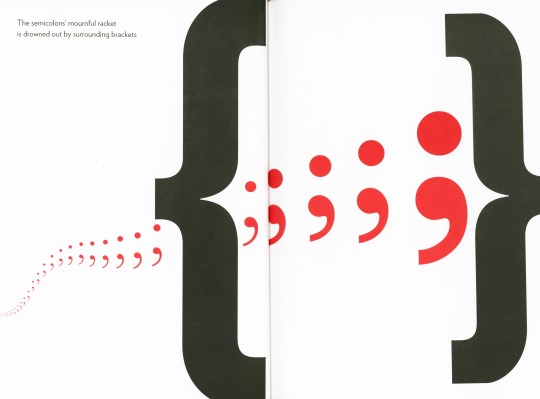
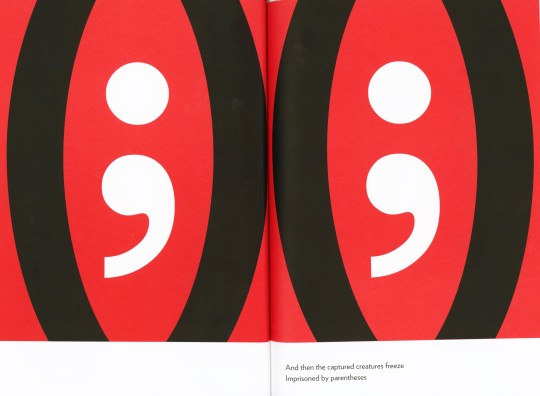

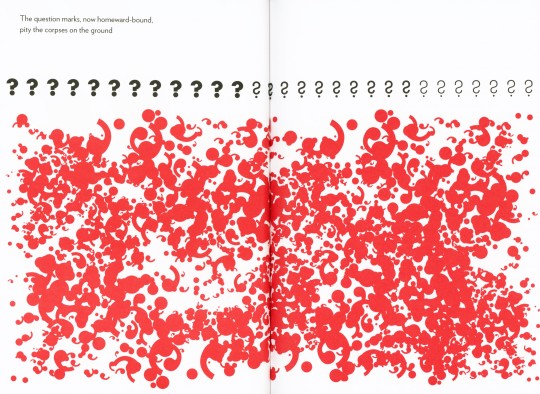
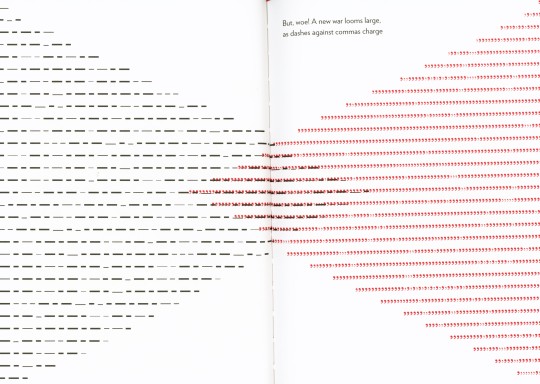
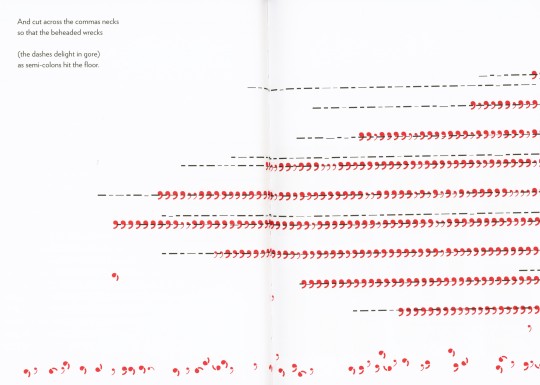
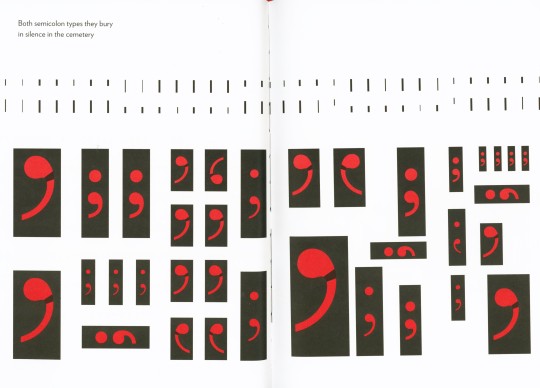
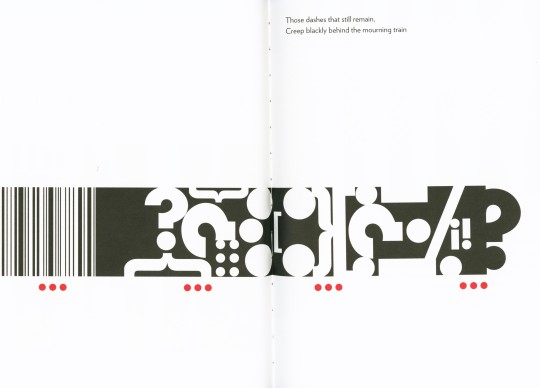
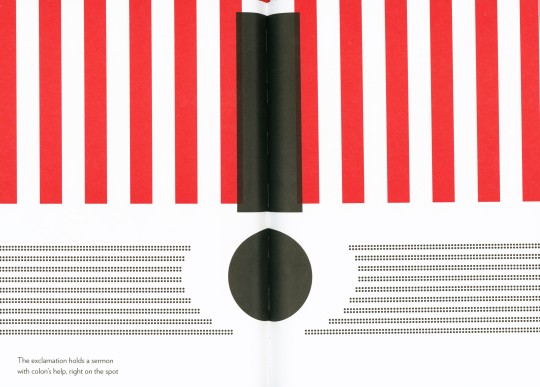
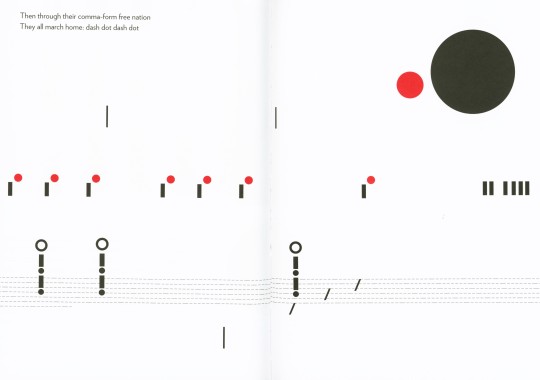
Typography Tuesday
Troubles in the Land of Punctuation
In the Land of Punctuation (Im Reich der Interpunktionen) was first published by the popular German satirical poet Christian Morgenstern in 1905. Morgenstern called the poem a linguistic caprice; a rhyming piece of black humor populated by punctuation marks as characters with fascistic agendas, where certain groups with similar features (first semi colons, then the colons) are accused of being parasites, hunted down and exterminated, and ultimately lamented. The story seems prescient for Germany 30 years later, and a relevant cautionary tale for our own times.
Our edition of the poem was published in Chennai, India by Tara Books in 2009, with an English translation by Indian-Canadian writer Shirish Rao and brilliant typographic illustrations by Chennai-born graphic and type designer Dr. Rathna Ramanathan, Head of Central Saint Martins and Pro-Vice Chancellor of the University of the Arts, London. Our copy is a gift from our friend Nirmal Raja.
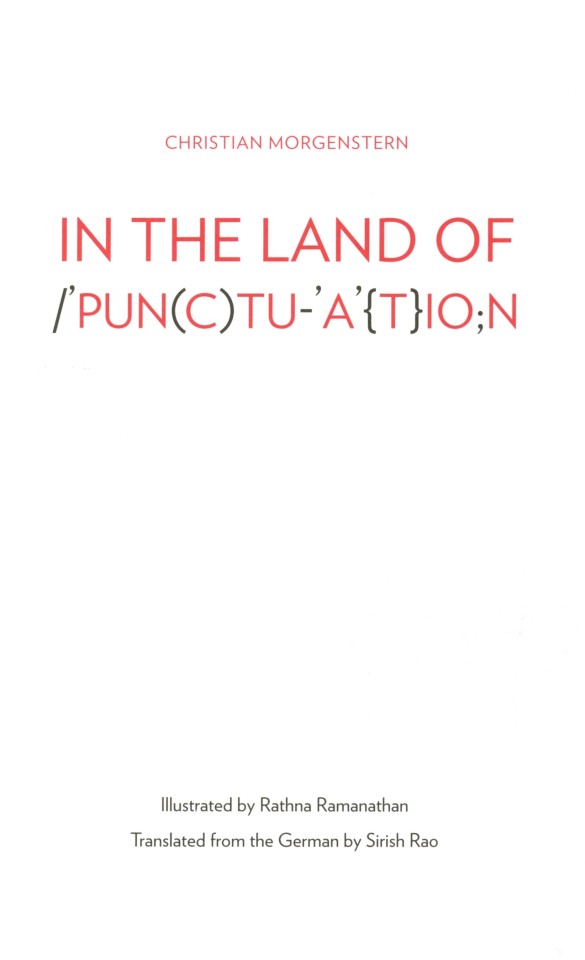
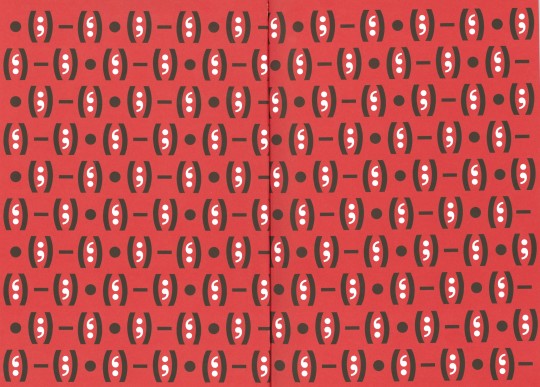
View a post on another book from Tara Books.
View more Typography Tuesday posts.
68 notes
·
View notes
Text
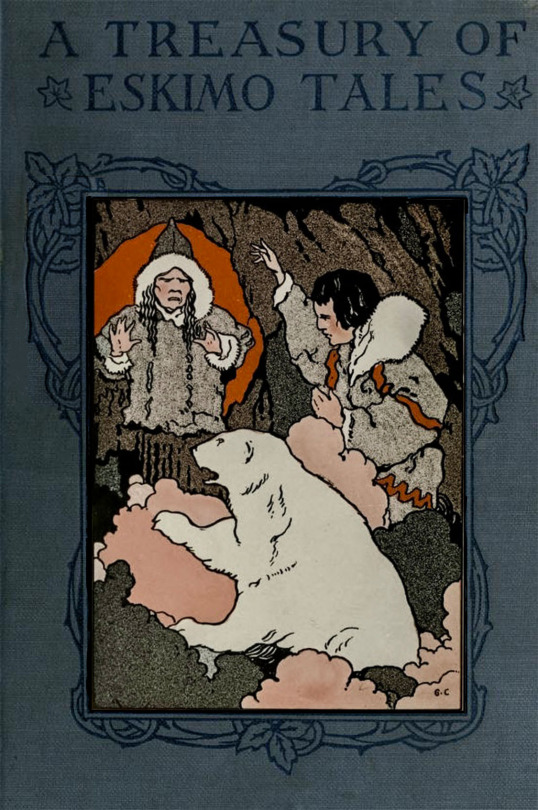
A TREASURY OF ESKIMO TALES edited by Clara Kern Bayliss (New York: Crowell, 1922). Illustrated by George Carlson.
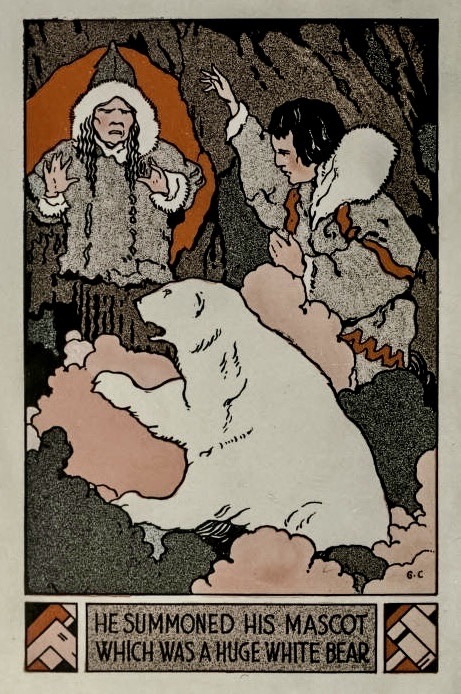
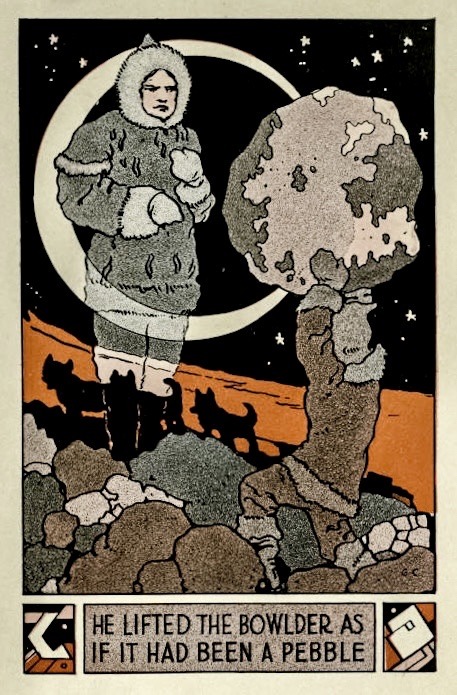
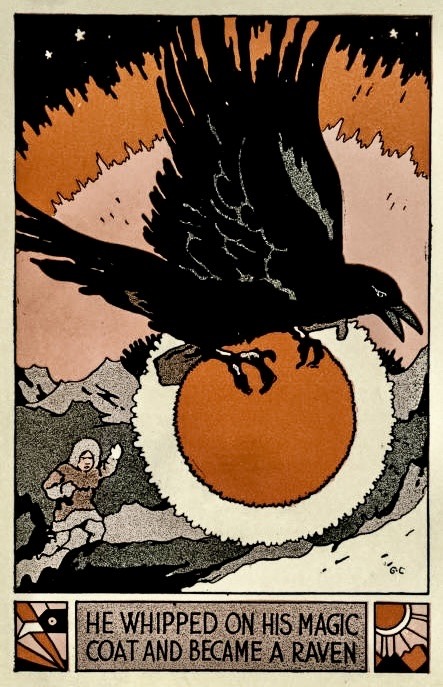
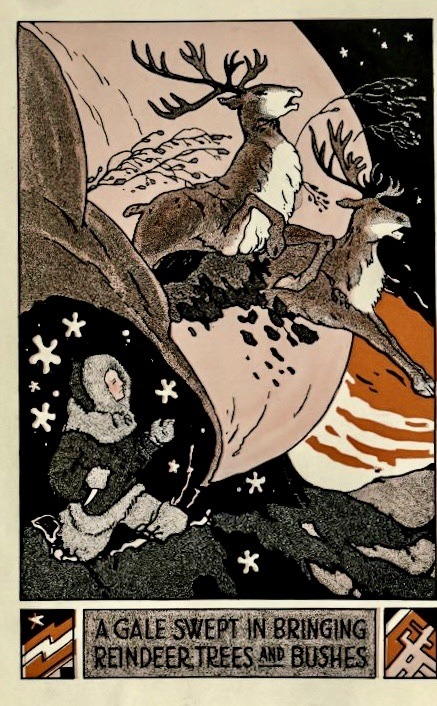
source
55 notes
·
View notes
Text
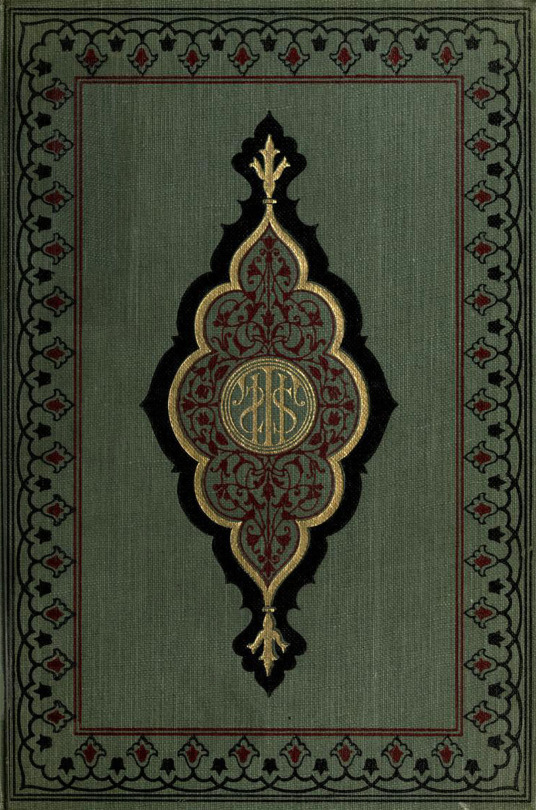
TALES: KASHMIRI STORIES AND SONGS collected by Tilawônu Hatim, Sir Aurel Stein, and Sir George Abraham Grierson (London: Murray, 1923)
source
90 notes
·
View notes
Text
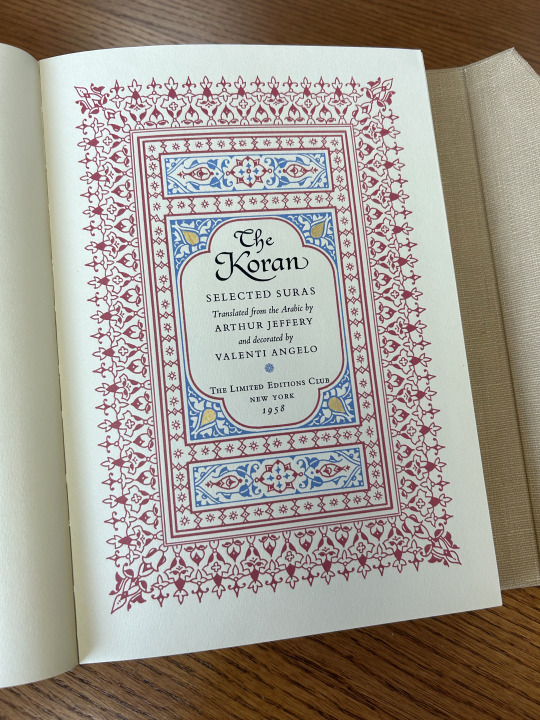

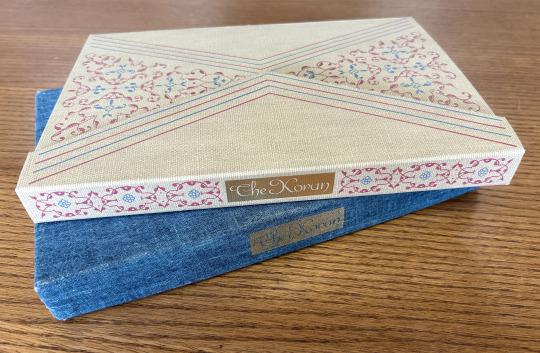
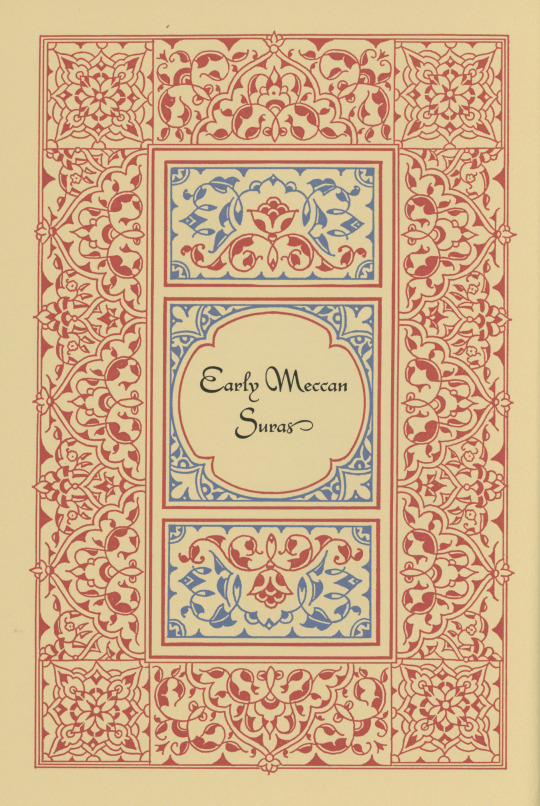
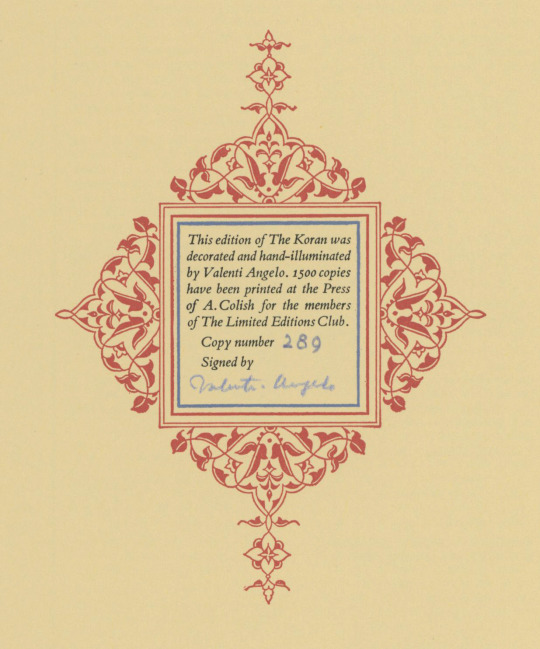

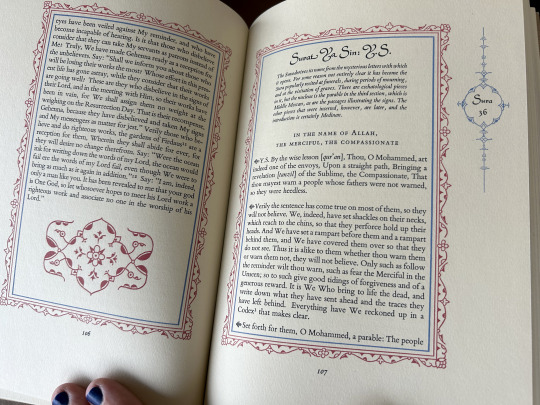
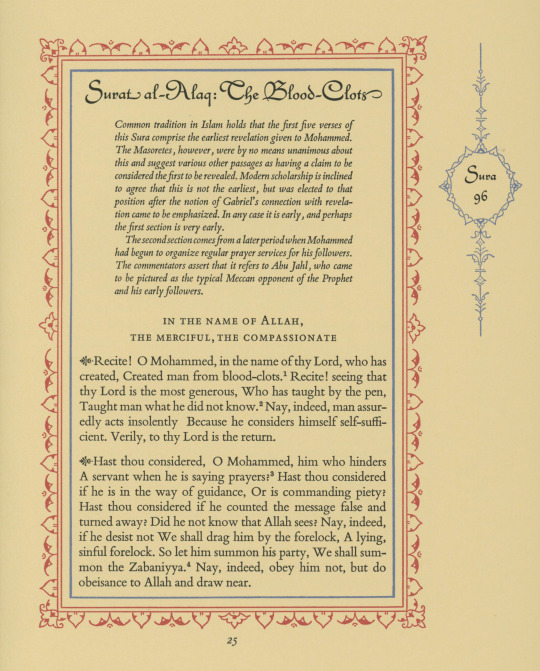

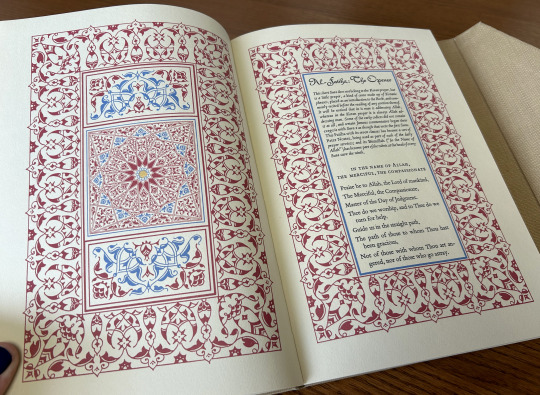
It’s Fine Press Friday!
This week, in honor of Ramadan, we’re taking a peek at a 1958 Limited Editions Club (LEC) publication of The Koran: Selected Suras from our collection. This modern, handsomely bound and illustrated collection of texts from the Qu‘ran was translated into English by Australian American scholar of Asian studies Arthur Jeffery (1892-1959), and features decorations in grayed blue and red ink from Italian American printmaker, illustrator, and author Valenti Angelo (1897-1982). The title page and the page opposite the opening sura were also hand-illuminated in gold by Angelo. The text, which features Bembo type and Civilité headings, is printed in black ink on custom made tan Arak paper from Curtis Paper Company, a paper mill in Newark, Delaware known for its manufacture of high-quality rag papers using 19th-century Fourdrinier machinery. The work was printed by Abraham Colish (1882–1963, otherwise known as A. Colish) and bound in cloth covered boards which were hand stamped with decorations in blue, red, and gold. It was released in an edition of 1500 copies, all of which were signed by the illustrator.
رمضان مبارك (Ramadan Mubarak)
Find more materials related to the Quran (including original manuscripts and alternate translations in Latin, French, and German) in UWM’s Special Collections
View more Fine Press Friday posts
View another Ramadan post
View more Bembo and Civilité posts
View more Valenti Angelo posts
View more A. Colish posts
View more Limited Editions Club posts
-- Ana, Special Collections Graduate Intern
47 notes
·
View notes
Text
Ella
Ella amaba los árboles y era apacible como un lago.
Cultivaba flores rojas,
supo enfrentar su muerte con serenidad.
Ella sabía escuchar y danzaba frente al espejo.
jugaba con tréboles y tenía una inocencia infantil.
A veces me da por extrañar su risa,
sus manos entre mis cabellos.
Ella perfumaba la casa con aroma a jazmín,
era compleja y abrazaba sus contradicciones;
conocía los secretos de la montaña.
y suspiraba todas las mañanas.
Ella era silenciosa y ardía intensamente.
0 notes
Photo

Experiments with the golden ratio, top view of dandelion seeds with black background. Notice the spiral pattern.
97 notes
·
View notes
Photo

Detail : Portrait of Nicolas Kratzer. 1528. Hans Holbein the younger. German 1497-1543. tempera on oak.
http://hadrian6.tumblr.com
1K notes
·
View notes
Photo

Piedra del Sol: Stone of the Five Eras (Aztec Calendar Stone), Engraving taken from Antonio de León y Gama’s Histórica y Cronológica de las Dos Piedras, ca. 1832.
[National Museum of Anthropology, Mexico City]
337 notes
·
View notes
Photo

From Qurṭubah, Spain 1137, Almoravid period
Minbar (pulpit) formerly in the Qutubiyya mosque. Detail of the marquetry on the sides of the minbar – cedar wood, ebony and ivory.
1K notes
·
View notes
























